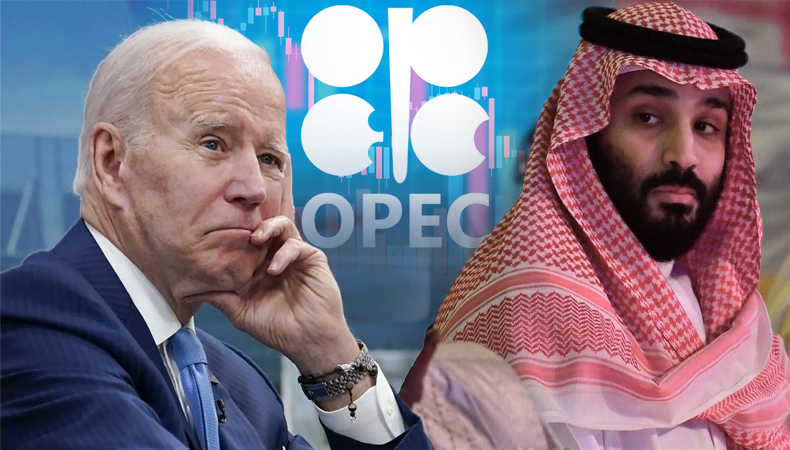Biden, Saudi Royals at odds as evidenced by reduction in OPEC+ oil production

According to interviews with about a dozen government officials and experts in Washington and the Gulf, the OPEC+ organization’s decision this week to cut oil production despite strong US opposition has further strained already tense relations between President Joe Biden’s White House and Saudi Arabia’s royal family, once one of Washington’s staunchest Middle East allies.
According to these sources, the White House worked hard to block the OPEC output cut. In advance of the midterm elections, in which his Democratic party is battling to retain control of the US Congress, Biden wants to prevent gasoline prices in the US from rising once more. Additionally, Washington wants to restrict Russian energy sales during the conflict in Ukraine.
For weeks, the US government pressed OPEC+. According to two sources familiar with the conversations, senior US officials from the energy, foreign policy, and economic teams recently lobbied their foreign colleagues to vote against a reduction in output.
Tim Lenderking, the administration’s special envoy to Yemen, Brett McGurk, and Amos Hochstein, Biden’s top energy envoy, visited Saudi Arabia last month to address energy concerns, particularly the OPEC+ decision.
Read | Saudi Arabia Might Pay Heavily Over Decision To Cut Oil Production As OPEC+ Leading Member
They failed to stop a decrease in output, just as Biden did following his own visit in July. According to a person briefed on the negotiations, US officials “tried to portray it as ‘us vs Russia,'” telling Saudi leaders they needed to make a decision.
The Saudis responded by saying that if the United States wanted more oil on the markets, it should start producing more of its own, the source claimed, adding that this argument was unsuccessful.
According to information from the US Energy Information Administration, the United States is both the world’s top producer and user of oil.
Reuters emailed the Saudi government’s CIC media office for comment on the conversations, but they received no response.
Energy Minister Prince Abdulaziz said on Saudi TV on Wednesday, “We are concerned first and first with the interests of the Kingdom of Saudi Arabia and secondly the interests of the countries that trusted us and are members of OPEC and the OPEC + alliance.”
“We have an interest in promoting the expansion of the global economy and delivering energy supplies in the greatest way,” he added. OPEC balances its interests with “those of the world.”
Saudi authorities have been dissatisfied with Washington’s handling of the Iran nuclear deal, withdrawal of assistance for a Saudi-led coalition’s offensive military operations in Yemen, and actions against Russia following the February 2022 invasion of Ukraine.
After the OPEC cut, Energy Minister Prince Abdulaziz bin Salman said on Bloomberg TV that the US’s demand for a price ceiling on Russian oil is creating confusion because of the “lack of details and the lack of transparency” about how it will be put into effect.




